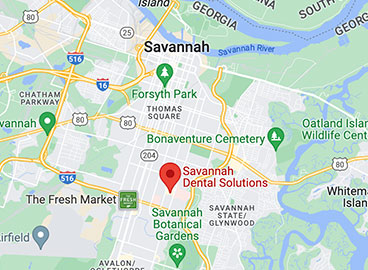
Do you have pain or limited motion in your jaw? These are the two most common symptoms of TMJ disorder. TMJ stands for the temporomandibular joint, which is the place where the lower jaw attaches to the skull. This joint can become inflamed, resulting in pain and restricted movement.
If you have symptoms, you may wonder who you should see about it, your dentist or your primary care doctor. Sometimes TMJ causes ear pain, which makes patients wonder if they need an ENT (ear, nose, and throat doctor). Here’s what you should do if you have TMJ pain.
See Your Dentist for TMJ Disorder
The best medical professional to see for TMJ issues is your dentist. Dentists focus on the health of the teeth as well as the jaw. A dentist specializes in the anatomy and physiology of the jaw, including bite alignment as it plays a major role in dental health.
If you were to contact your primary care doctor about your TMJ disorder, they may refer you to a dentist or prescribe you some basic treatment options. Even though you may experience pain in the ear, if the issue is with your jaw, an ENT will not be able to help you.
Save yourself some time and contact your dentist directly about any issues with your jaw. If your dentist can’t help, they will refer you to someone who can.
What Causes TMJ Disorder?
One of the most common causes of TMJ disorder is teeth grinding. If you grind your teeth or clench your jaw often, it puts pressure on the temporomandibular joint. This can cause the muscles and tendons to tighten up and become inflamed, causing pain and limited range of motion. Other causes include:
- Injury. A blow to the jaw could cause the joint to be out of alignment or cause the disc to slip out of place in the joint.
- Arthritis. Arthritis can affect the temporomandibular joint as it does the other joints in your body.
- Autoimmune diseases. Rheumatoid arthritis and other autoimmune diseases can affect the TMJ.
- Lengthy dental procedures. If you have recently undergone lengthy oral surgery or a dental procedure, TMJ disorder may result from the strain of holding your mouth wide open or having it propped open for a long period of time.
Treatments for TMJ Disorder
There are a variety of treatment options for TMJ disorder. The course of treatment depends on the severity of the disorder, the symptoms, and the cause.
- Ice. Ice can be applied to the jaw and temple to reduce swelling and inflammation.
- Anti-inflammatory pain reliever. Ibuprofen is an anti-inflammatory medication that can relieve pain and reduce inflammation in the joint.
- Mouthguard. If your TMJ disorder results from teeth grinding, a mouthguard can help to absorb the shock and lessen the force on your jaw.
- Diet of soft foods. It can help to eat soft foods that don’t require much chewing or opening the mouth very far. This allows the jaw to rest for a period of time.
- Prescription pain reliever. Sometimes a stronger, prescription strength pain reliever can be prescribed when over the counter medication is not effective.
- Steroid injection. Severe cases may benefit from a steroid injection to promote healing.
- Botox injection. Botox can relax the muscles in the jaw to relieve pain and improve range of motion.
- Surgery. When nothing else works, surgery may be required to correct TMJ disorder.
Most dental offices can provide the majority of these treatment options or refer you to a specialist.
Savannah Dental Solutions Can Treat Your TMJ Disorder
If you’re experiencing pain or limited motion in the jaw, Savannah Dental Solutions can help. We can diagnose TMJ disorder and recommend a treatment plan to relieve your symptoms and help prevent reoccurance. We specialize in TMJ treatment and provide a range of treatment options in our office.
Call (912) 354-1366 or contact us today to schedule an evaluation. We look forward to helping relieve your TMJ symptoms and providing solutions for prevention.


